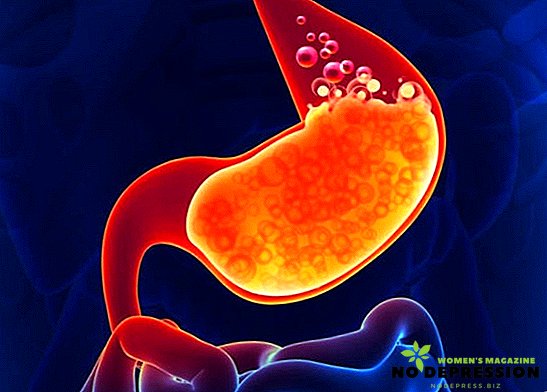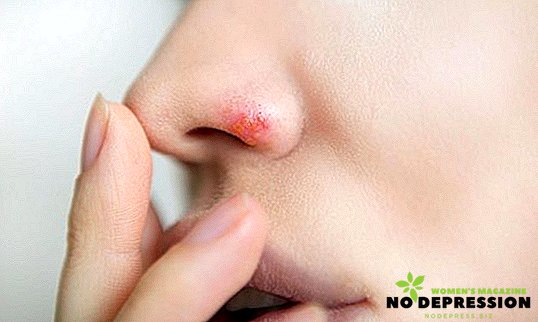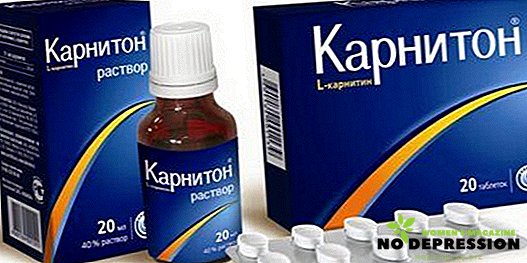Sodium thiosulfate solution is a complexing agent that has a pronounced anti-toxic, anti-inflammatory, desensitizing and antiparasitic effect. When taken orally or parenterally, the endocrine and reticuloendothelial systems are stimulated. In medical practice, the drug is used for poisoning with mercury, arsenic, lead and hydrocyanic acid.
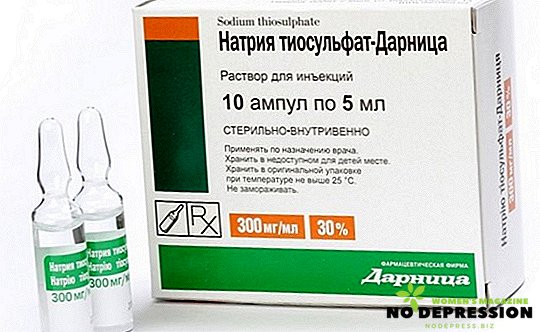
Mechanism of action of the drug
Sodium thiosulfate is a salt of thiosulfuric acid, used as a tool with a strong detoxification and antihistamine action.
This drug is available in the form of:
- powder;
- 6% solution;
- 30% sterile solution for intramuscular injection.
With the introduction of the drug can achieve a pronounced detoxification effect. In addition, compounds are formed with non-toxic or low-toxic cyanides. The main mechanism of detoxification in case of poisoning of the body with hydrocyanic acid and its salts is the formation of less toxic, rhodium compounds with the active participation of rhodonase enzymes.
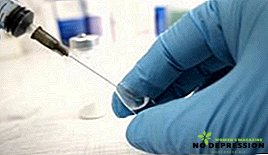 Feature of the body is that it is capable of endogenous detoxification of cyanides. At the same time, the rhodanase system functions rather slowly, and if cyanide is damaged by the body, its activity is too low for detoxification. For this reason, to accelerate the reaction requires the introduction into the body of sodium thiosulfate, which acts as a donor of sulfur.
Feature of the body is that it is capable of endogenous detoxification of cyanides. At the same time, the rhodanase system functions rather slowly, and if cyanide is damaged by the body, its activity is too low for detoxification. For this reason, to accelerate the reaction requires the introduction into the body of sodium thiosulfate, which acts as a donor of sulfur.
The drug has the following effects on the human body:
- Stimulates the functioning of all internal organs and speeds up the metabolism. It improves the functioning of the kidneys and liver, and is effective in various body poisonings. In addition, Sodium thiosulfate helps speed up the elimination of toxins.
- Helps accelerate the excretion of poisons. When injected into the body of heavy metals and dangerous drugs of a different nature Sodium thiosulfate binds toxic substances.
- It has anti-inflammatory effect. Relieves fatigue and relieves joint pain
- Antihistamine. Due to the active ingredients of the drug can quickly cope with the attacks of allergic reactions. Sodium thiosulfate is recommended as an antiallergic agent in the spring and summer period. The drug is effective in the treatment of dermatological pathologies.
Indications for use of the drug
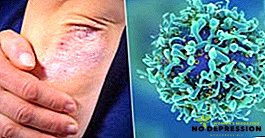 Sodium thiosulfate is prescribed for mercury poisoning, arsenic and lead. In addition, the drug is effective when injected into the human body hydrocyanic acid, its salts and bromine. The drug helps in the treatment of pathologies such as lupus erythematosus and allergic diseases.
Sodium thiosulfate is prescribed for mercury poisoning, arsenic and lead. In addition, the drug is effective when injected into the human body hydrocyanic acid, its salts and bromine. The drug helps in the treatment of pathologies such as lupus erythematosus and allergic diseases.
Externally, the drug can be used in the treatment of various parasitic lesions of the skin, scabies and lichen colored. Intramuscular injections are considered the most common and effective way of cleansing the body from accumulated toxins in it.
Sodium thiosulfate has a pronounced laxative effect, therefore, with its prolonged intake, the body is cleared of accumulated harmful substances and the work of all internal organs and systems is normalized. The result of this treatment appears fairly quickly: the skin becomes healthy, constipation disappears. The drug helps to cope with such a pathology as hypertension.
Features of use in ampoules
Sodium thiosulfate is administered intravenously in the form of 3-10% solutions in a dosage of 5-50 ml. In case of poisoning with substances such as prussic acid and cyanides, the drug is injected in 50 ml intravenously. For skin lesions, intravenous administration of a drug of 2-10 ml of 10-20% solution is indicated.
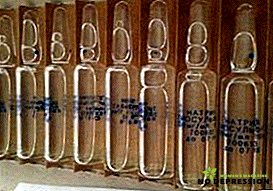 To date, clinical data on overdose of such drugs are not available. With a slight excess of the dosage, it is recommended to discontinue the therapy and seek medical help.
To date, clinical data on overdose of such drugs are not available. With a slight excess of the dosage, it is recommended to discontinue the therapy and seek medical help.
Sodium thiosulfate may be prescribed for the treatment of gynecological diseases as an additional means to the main therapy. Usually in gynecology, this tool is used in the implementation of the program of treatment of endocrine infertility. As part of the combination therapy, Actovegin intramuscularly injections, nicotinic acid electrophoresis and plasmapheresis are prescribed to women in addition to the drug.
In the treatment of ovarian pathologies, sodium thiosulfate is prescribed in combination with medications such as Dimexide, Diclofenac, and Vishnevsky ointment.
In case of genital tuberculosis, the drug is included in non-specific treatment, that is, its use is indicated to the patient along with enzyme preparations and antioxidants. The drug is injected into a vein in 10 ml every other day, and for the course the patient should receive 40-50 injections.
Contraindications and side effects
The instructions for use indicate that in some cases it is recommended not to use sodium thiosulfate. In any case, before starting therapy with this medication, you should first consult with a specialist.
It should be remembered that, despite the antihistamine effect of the agent, its use may cause an allergic reaction. It is necessary to abandon the use of funds for those patients who have individual hypersensitivity to the active substance and auxiliary components.
Contraindications to cleansing the body with sodium thiosulfate are:
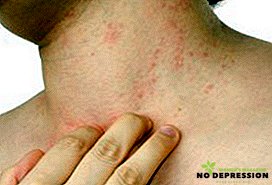 children's age (up to 16 years);
children's age (up to 16 years);- diabetes;
- disruptions in the functioning of the immune system;
- anemia;
- pathologies of the heart and vascular system;
- chronic pathologies of internal organs;
During pregnancy, use of sodium thiosulfate is permitted only when absolutely necessary. To date, it is not known whether such a drug can cause adverse effects on the embryo. In addition, there are no data on the effect of the drug on the ability to reproduce.
When taking the medication is not possible the development of side effects in the form of allergic reactions and fluctuations in blood pressure. Appearance is possible:
- rashes on the skin;
- swelling of tissues;
- hyperemia;
- itching.
When such symptoms appear, it is necessary to discontinue the use of the medication and consult with your doctor about the appropriateness of further treatment with this tool.
Analogs of the drug
To date, the pharmacological industry does not produce analogues of sodium thiosulfate on the active substance.
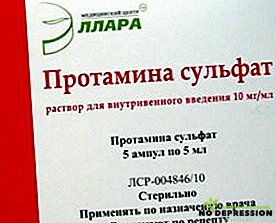 According to the mechanism of the therapeutic effect and belonging to the same group, the following drugs serve as analogues of the drug:
According to the mechanism of the therapeutic effect and belonging to the same group, the following drugs serve as analogues of the drug:
- Protamine;
- Protamine-Ferein;
- Pentacin;
- Protamine Sulfate;
- Anex
Analogues for intramuscular administration are such means as Carboxim, Pelixim and Atsizol. As a solution for Sodium injection, thiosulfate is allowed to be replaced by such medicines as Lobelin, Glation, Dipyroxime and Nalorphine.
Features of the diet in the treatment of sodium thiosulfate
During the course of treatment, it is necessary to adhere to a special diet and consume as much liquid as possible. For this purpose, simple water or diluted citrus juice is best suited.
It should be remembered that sodium thiosulfate has a laxative effect. Given this particular product, it is necessary to minimize the consumption of dairy and meat products, especially sour cream and milk. It is recommended to fill the diet with porridge and vegetables cooked in water. In addition, it is allowed to eat honey, fish and low-fat products.
 In the treatment of sodium thiosulfate, marinades, smoked meats, fried foods, sauces and alcoholic beverages are banned. It is better to minimize the use of flour and confectionery, as well as strong coffee and high-fat foods. It is not allowed to enter into the diet foods that can enhance the formation of gas.
In the treatment of sodium thiosulfate, marinades, smoked meats, fried foods, sauces and alcoholic beverages are banned. It is better to minimize the use of flour and confectionery, as well as strong coffee and high-fat foods. It is not allowed to enter into the diet foods that can enhance the formation of gas.
Often, sodium thiosulfate is used specifically for cleaning the body from accumulated toxins and slags. To obtain a more pronounced result during the period of treatment, it is recommended to adhere to a special diet.
Sodium thiosulfate is considered a safe and inexpensive drug, the use of which helps to significantly alleviate the condition of a person. At the same time, there are some contraindications to its use, so before using it is necessary to carefully study the attached instructions.


 children's age (up to 16 years);
children's age (up to 16 years);
